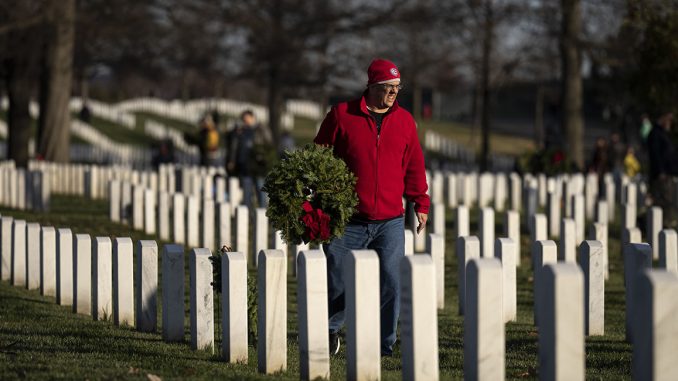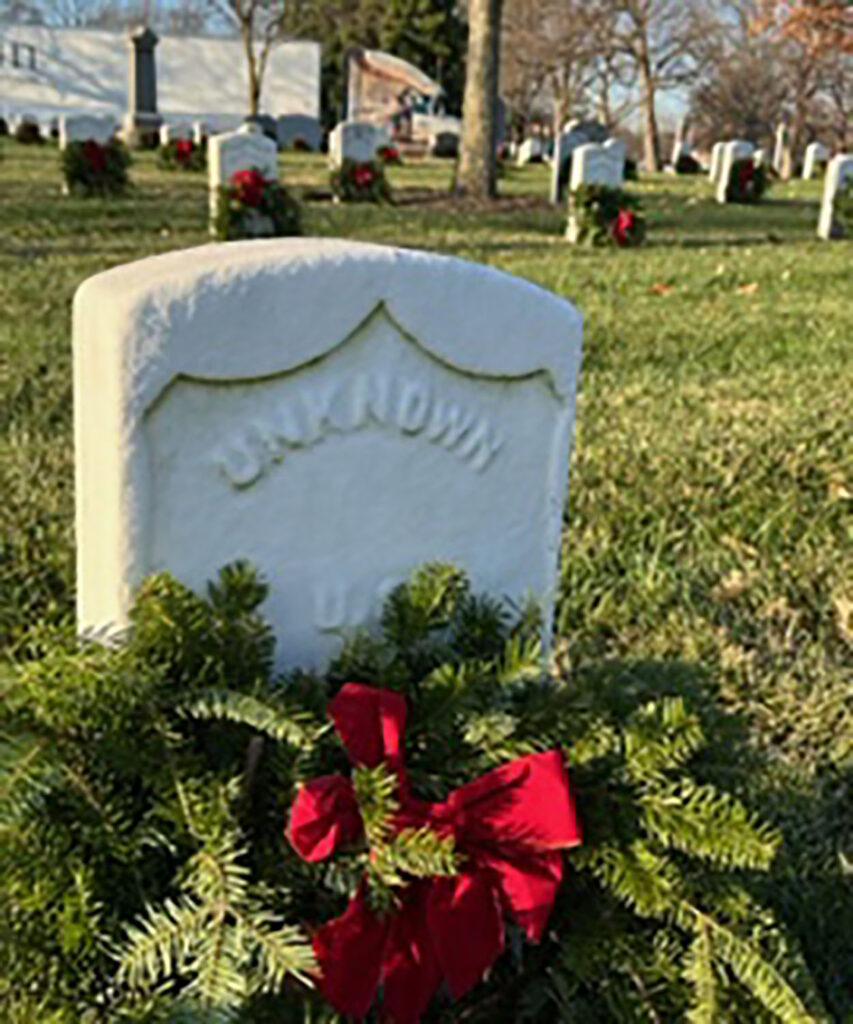
On a brisk sunny day under the cerulean sky over our nation’s capital, we gathered Saturday to lay fresh Christmas wreaths on headstones at Arlington National Cemetery. I took my wife and four children, as I do each year, to honor and pay our respects to those who wore the uniform.
But this year was different.
Volunteers who handed out the wreaths as part of Wreaths Across America Day reminded participants to say the name inscribed on the headstone out loud as we gently placed a wreath on the grave. The volunteers noted that this was likely the only time someone had said the service member’s name, or visited that grave, since last year.
What struck me this year, as I worked in Section 13, was the number of graves with the inscription, “Unknown U.S. Soldier.” There were hundreds of them, many side by side.
As I placed the wreath, red ribbon on top, gently on the grave, I said out loud: “Unknown U.S. Soldier, thank you for your service.”
It was sad, poignant, lonely.
Who was he? Did he leave behind a family? How did he die, and in what war? Many of the graves in this section were from the Civil War, so I assumed that many of these “unknown” soldiers died in that great struggle.
Perhaps it struck me differently this year because, after 30 years of service in the Navy, I retired this year. Unlike in years past, I didn’t wear my uniform. I was just another civilian now, doing my small part. An unknown, laying wreaths on the tombstone of an “Unknown U.S. Soldier.”

As I trudged from the gravestones to the truck and back again, laying wreath after wreath on each grave, my mind drifted to the poets who so eloquently captured the quiet dignity of military service, only to be interred under a headstone marked, “Unknown U.S. soldier.”
One of the most well-known poets of the Civil War era was Walt Whitman. Although not a soldier himself, Whitman spent countless hours tending to the sick in military hospitals and visited battlefields strewn with war dead.
One of Whitman’s poems, titled “Unnamed Remains the Bravest Soldier,” seemed to capture the moment, especially the last line:
…and there, at last, the Bravest Soldier crumbles in mother earth, unburied and unknown.
And then I was reminded of William Samuel Rosenberg’s 1939 poem, “The Unknown Soldier,” which captures, I think, the unexpressed sentiments of those long-silenced men who lie in state under white headstones, gone but not forgotten:
There’s a graveyard near the White House
Where the Unknown Soldier lies,
And the flowers there are sprinkled
With the tears from mother’s eyes.
I stood there not so long ago
With roses for the brave,
And suddenly I heard a voice
Speak from out the grave:
“I am the Unknown Soldier,
The spirit voice began
“And I think I have the right
To ask some questions man to man.
“Are my buddies taken care of?
Was their victory so sweet?
Is that big reward you offered
Selling pencils on the street?
“Did they really win the freedom
They battled to achieve?
Do you still respect that Croix de Guerre
Above that empty sleeve?
“Does a gold star in the window
Now mean anything at all?
I wonder how my old girl feels
When she hears a bugle call.
“And that baby who sang
Hello, Central, give me no man’s land.
Can they replace her daddy
With a military band?
“I wonder if the profiteers
Have satisfied their greed?
I wonder if a soldier’s mother
Ever is in need?
“I wonder if the kings, who planned it all
Are really satisfied?
They played their game of checkers
And eleven million died.
“I am the Unknown Soldier
And maybe I died in vain,
But if I were alive and my country called,
I’d do it all over again.”
Have an opinion about this article? To sound off, please email letters@DailySignal.com and we’ll consider publishing your edited remarks in our regular “We Hear You” feature. Remember to include the url or headline of the article plus your name and town and/or state.

